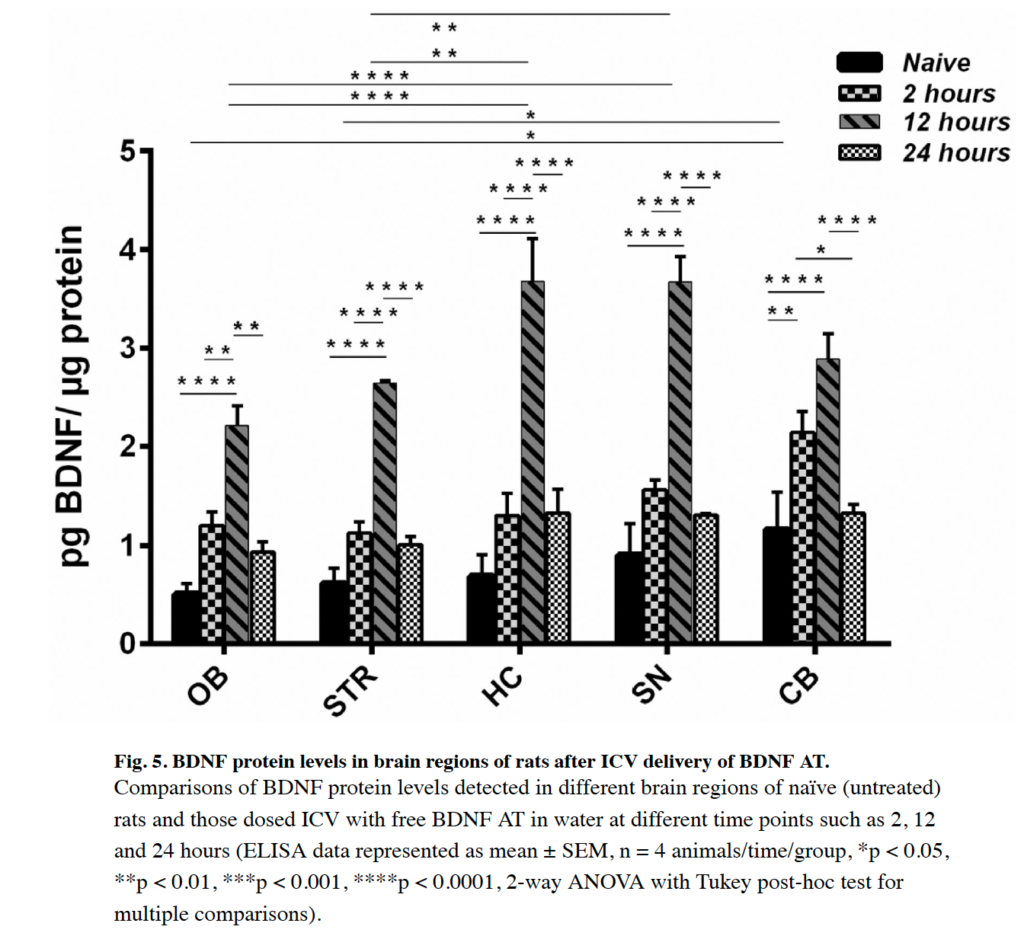Minimally Invasive Nasal Depot (MIND) Delivery

The limitations of central nervous system (CNS) drug delivery conferred by the blood-brain barrier (BBB) have been a significant obstacle in the development of large molecule therapeutics for CNS disease. Though significantly safer than direct CNS administration via intrathecal (IT) or intracerebroventricular (ICV) injection, the topical intranasal delivery of CNS therapeutics has failed to become clinically useful due to a variety of practical and physiologic drawbacks leading to high dose variability and poor bioavailability. This study describes the minimally invasive nasal depot (MIND) technique, a novel method of direct trans-nasal CNS drug delivery which overcomes the dosing variability and efficiency challenges of traditional topical trans-nasal, trans-olfactory strategies by delivering the entire therapeutic dose directly to the olfactory submucosal space. We found that the implantation of a depot containing an AntagoNAT (AT) capable of de-repressing brain derived neurotrophic factor (BDNF) expression enabled CNS distribution of ATs with significant and sustained upregulation of BDNF with efficiencies approaching 40% of ICV delivery. As the MIND technique is derived from common outpatient rhinological procedures routinely performed in Ear, Nose and Throat (ENT) clinics, our findings support the significant translational potential of this novel minimally invasive strategy as a reliable therapeutic delivery approach for the treatment of CNS diseases.

Padmakumar S, Jones G, Pawar G, Khorkova O, Hsiao J, Kim J, Amiji MM, Bleier BS. Minimally Invasive Nasal Depot (MIND) technique for direct BDNF AntagoNAT delivery to the brain. J Control Release. 2021 Mar 10;331:176-186. doi: 10.1016/j.jconrel.2021.01.027. Epub 2021 Jan 21. PMID: 33484777; PMCID: PMC7946770.
